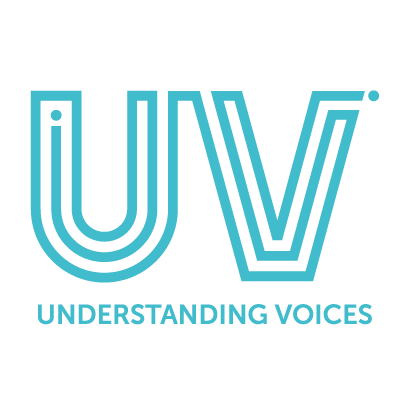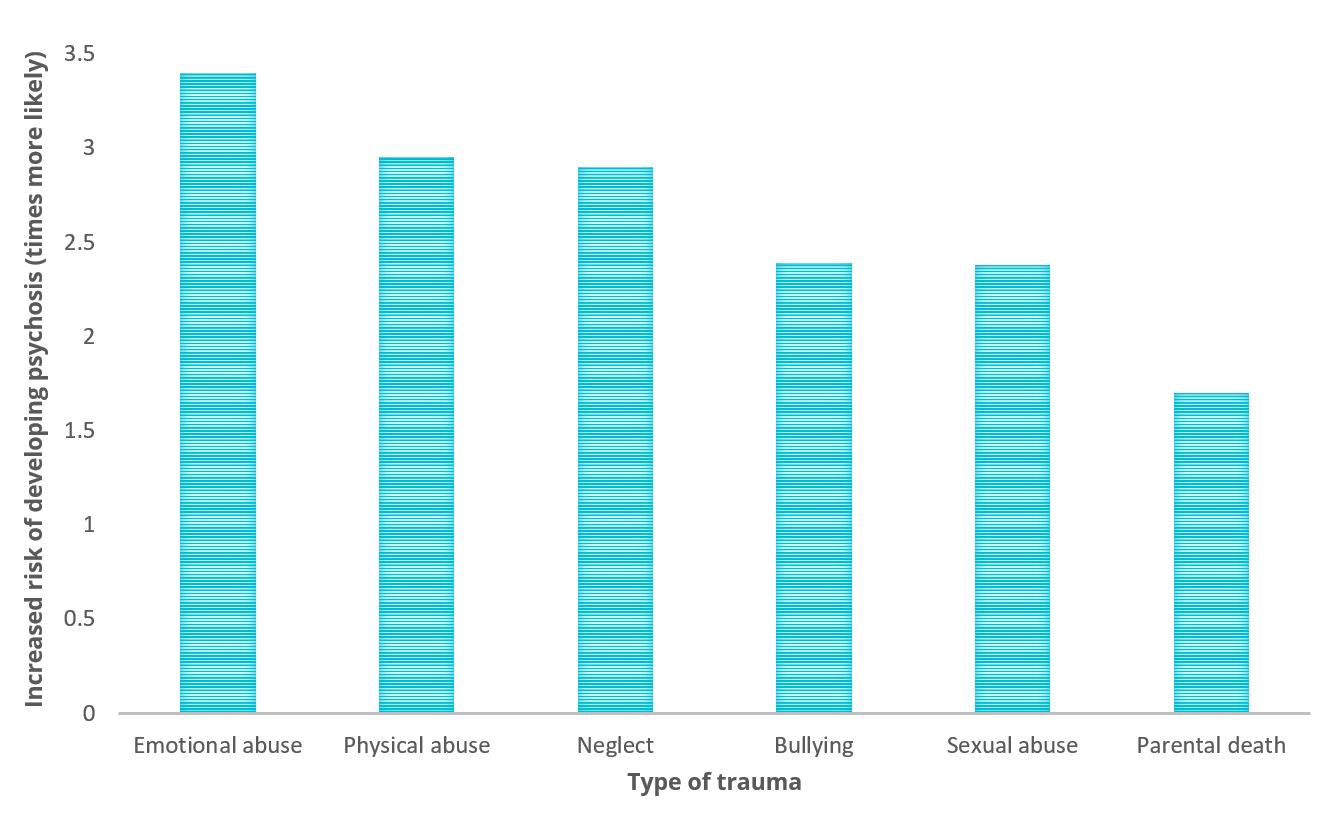Voices and trauma
An important aspect of current research into voice-hearing concerns the connection between hearing voices and trauma. On one theory that has been proposed, some types of voices are best understood as having their roots in memories of early trauma such as neglect, bullying and physical, sexual or emotional abuse. Others might be linked to traumatic life experiences such as bereavement, war or torture. Many voice-hearers find it makes sense to think of their experiences in this way, and is an important step in resolving the underlying emotional problems and distress that their voices may be expressing.
In what follows, we take a brief look at the prevalence of traumatic life events amongst people with experience of voices and psychosis more generally, and consider the role dissociation might play in linking the two.

What I would ultimately learn was that each voice was closely related to aspects of myself and that each of them carried overwhelming emotions that I’d never had an opportunity to process and resolve – memories of sexual trauma and abuse, of shame, anger, loss, and low self-worth. The voices took the place of this pain and gave words to it. And possibly one of the greatest revelations was when I realized that the most hostile, aggressive voices actually represented the parts of me that had been hurt most profoundly…
Eleanor Longden
‘The Voices in My Head’, TED 2013
Trauma, psychosis and hearing voices: What are the statistics?
The evidence of a link between childhood misfortune and future psychotic disorder is about as strong statistically as the link between smoking and lung cancer.
Richard Bentall, Professor of Clinical Psychology at the University of Sheffield
The Guardian
There are strong links between voice-hearing and traumatic life experiences. A review of research into the topic found that people with a history of childhood adversity (including neglect, bullying, physical, sexual and emotional abuse) are approximately 3 times more likely to develop psychosis. Those who had experienced multiple types of abuse were at much higher risk. This is what is known as a dose-response effect.
Some kinds of trauma have been specifically linked to voice-hearing – for example, childhood sexual abuse and bullying.
There is also evidence that the character and content of voices – what they are like and what they say – can be related to trauma. Some people report voices and other unusual experiences that are like ‘flash backs’ or memories that directly replay or echo the traumatic event. For others, the link is more indirect. For example, a survivor of childhood abuse struggling with shame and other negative feelings might hear the voice of their abuser telling them they are worthless, or commanding them to do dangerous and unacceptable things.
Specific types of adversity and their association with psychosis
Varese et al (2012) .
I thought I was bad because the voices called me all sorts of names. Later I realized that the voices were related to the physical abuse because they have the characteristics of those that abused me.
Daan Marsman
Living with Voices
Trauma and dissociation
How people respond to trauma experiences is also thought to be important. A very common response is something called ‘dissociation’. Dissociation occurs when thoughts, feelings and experiences are ‘split off’ from the self and are not incorporated into one’s stream of consciousness and memory. It might involve:
- Gaps in your life where you can’t remember anything that happened
- Feeling as though you are floating away, watching yourself in a film or looking at yourself from the outside
- Feeling as though the world around you is ‘unreal’, ‘lifeless’ or ‘foggy’
- Shifts or changes in your identity, including speaking in a different voice, using a different name or feeling as if you are losing control to someone else

Admittedly, the links between voice-hearing, trauma and memory processes are not yet well understood. Some research suggests that voices are intrusions from memory that are not kept out of everyday consciousness in the usual way. One important thing our brains do is tell the difference between something that really happened and something that was just imagined. There is evidence that voice-hearing relates to changes in this process. None of these explanations have to exclude each other. Rather, for any particular voice-hearer, they are likely to be parts of the same story.
Find out more
Read
The British Psychological Society (2017). Understanding Psychosis and Schizophrenia, Section 6. The British Psychological Society.
Jacqui Dillon (2009) The tale of an ordinary little girl. Jacquidillon.org.
Richard Bentall and Charles Fernyhough. (2008). Social predictors of psychotic experiences: Specificity and psychological mechanisms. Schizophrenia Bulletin, 34.

